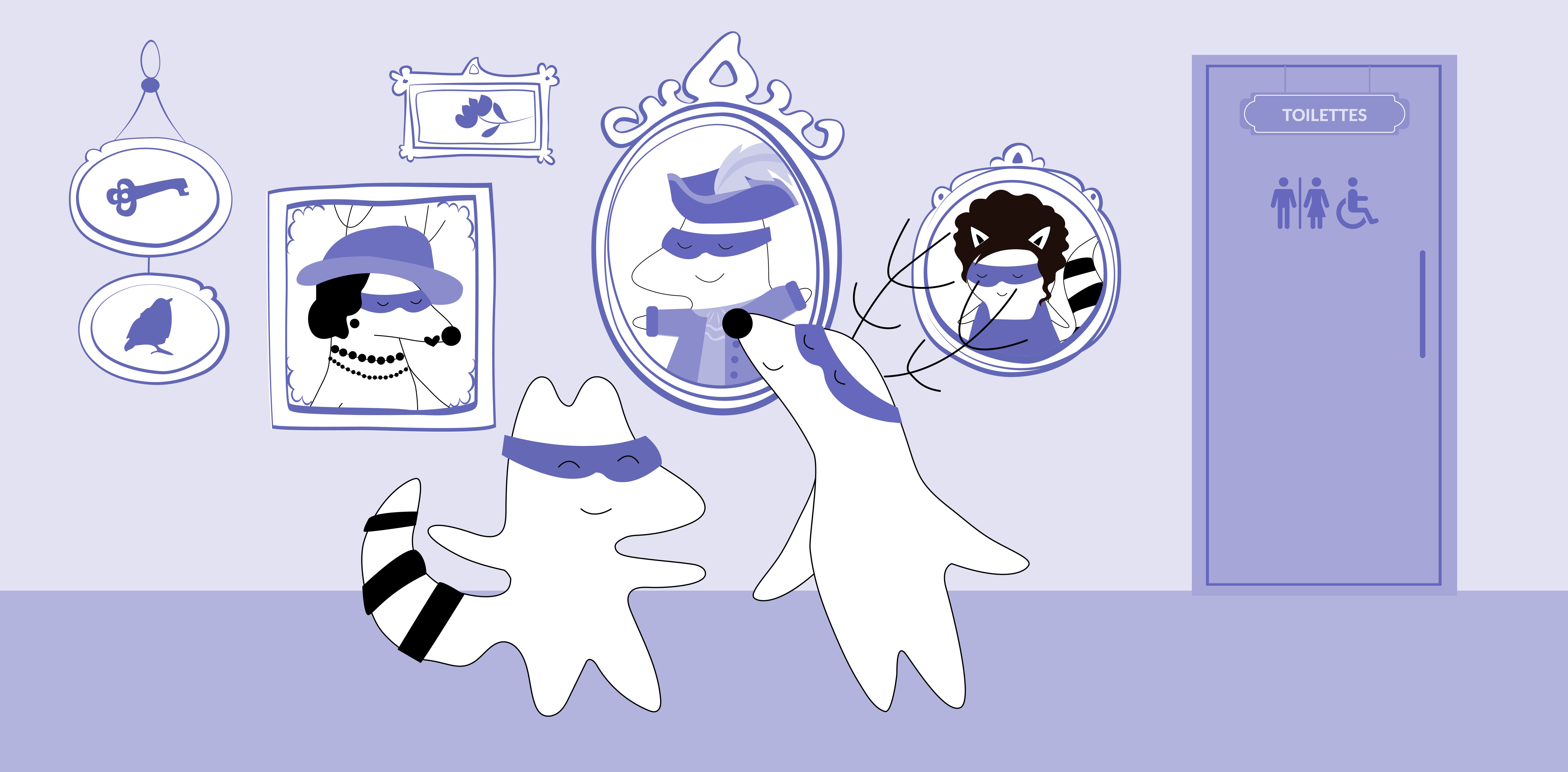
Planning a trip to Paris or any other marvelous French city? Whether you're a devoted language learner, a passionate traveler, or an aspiring polyglot, understanding the essentials of French is your passport to a more enriching experience.
Among these essentials is vocabulary related to the "WC," or bathroom. In this comprehensive guide, we'll take you from the basics of asking for the nearest restroom to understanding the nuanced expressions you might encounter when navigating public places.
We are diving into the world of les toilettes and its cultural nuances, offering not just words but a journey through the unwritten code of conduct in French bathrooms. After all, what phrase could be more universally urgent and used than "Where is the bathroom?" Let's make sure you know the answer, en français!
Learn French with Langster
Common Terms for WC in French
When nature calls, you’d better be prepared with the right words. The French language offers a variety of terms for the all-important WC:
| French word | Literal Translation | Explanation |
|---|---|---|
| Les toilettes | The toilets | The most formal term you can use. It refers to the actual room and not just the toilet itself. |
| Les WC | The WC | An acronym of "water closet," widely recognized though less used than "les toilettes." |
| Le petit coin | The littler corner | Slightly informal, "the little corner" is a charming way to refer to the bathroom. |
| Les cabinets de toilette | The washroom, toilet facilities | A formal term typically used in more upscale settings — e.g., at elegant hotels. |
| Les toilettes publiques | The public toilets | Refers to public restrooms, which are often found in parks and other outdoor spaces. |
| Le chiottes, les chiottes | The crapper | A rather informal and not particularly classy way to ask for the facilities. |
| French word | Literal Translation | Explanation |
|---|---|---|
| Les toilettes | The toilets | The most formal term you can use. It refers to the actual room and not just the toilet itself. |
| Les WC | The WC | An acronym of "water closet," widely recognized though less used than "les toilettes." |
| Le petit coin | The littler corner | Slightly informal, "the little corner" is a charming way to refer to the bathroom. |
| Les cabinets de toilette | The washroom, toilet facilities | A formal term typically used in more upscale settings — e.g., at elegant hotels. |
| Les toilettes publiques | The public toilets | Refers to public restrooms, which are often found in parks and other outdoor spaces. |
| Le chiottes, les chiottes | The crapper | A rather informal and not particularly classy way to ask for the facilities. |
Each expression carries a slight socio-linguistic connotation and is used in different contexts. But, what about the actual toilet? It's not called "toilet" in French. The word toilettes rather refers to the fixings in the room — this is why learning the right word matters.
Other Key Phrases to Master
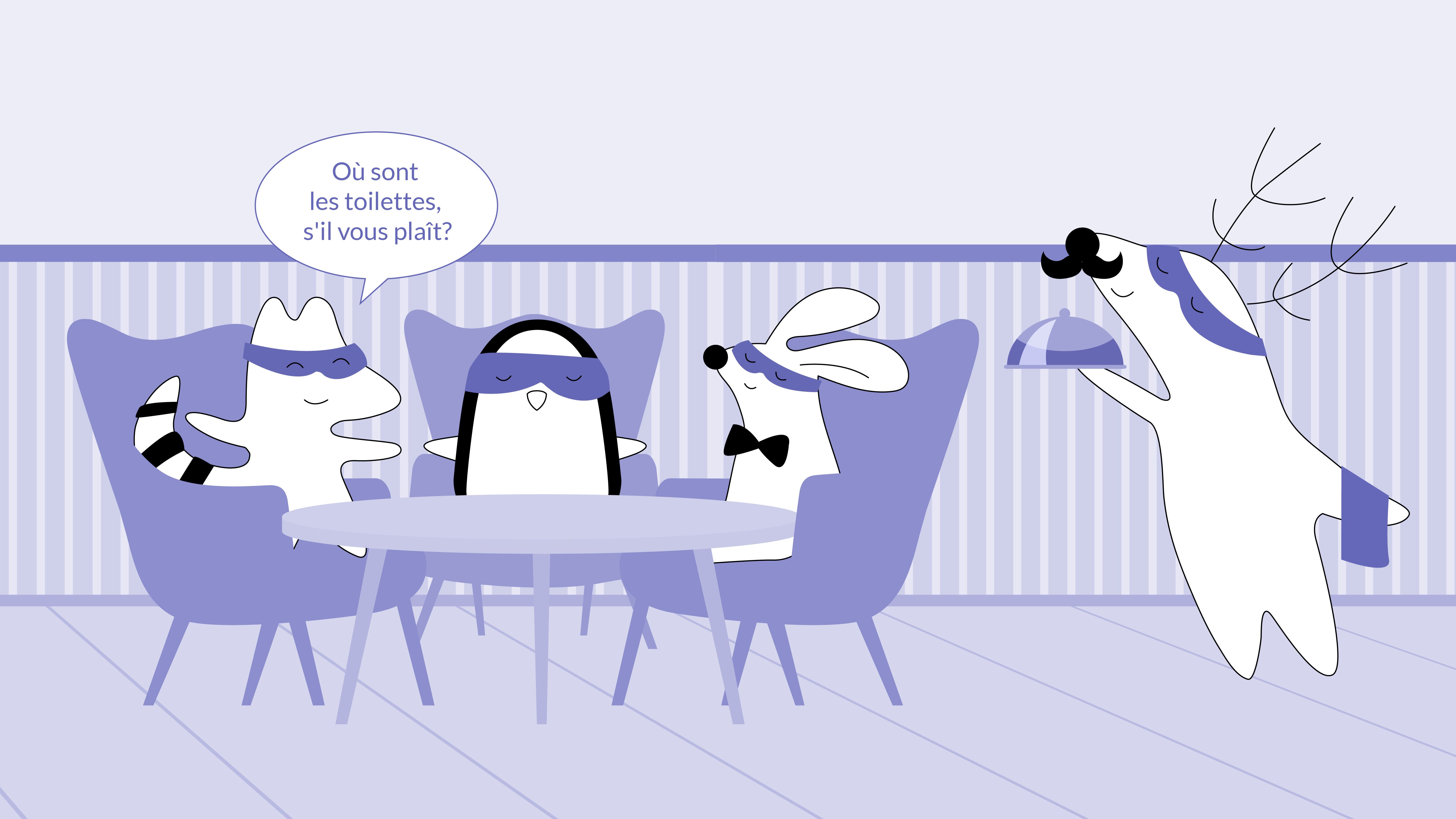
Do you need to excuse yourself or find a way to the nearest bathroom? Here’s what you need to say:
| French Expression | Translation | Explanation |
|---|---|---|
| Je dois y taller. | I have to go. | Can be used as a polite way of excusing yourself to go to the restroom. |
| Où sont les toilettes, s'il vous plaît? | Where is the bathroom, please? | Essential for asking directions when you're in urgent need. |
| Excusez-moi, où sont les toilettes? | Excuse me, where is the toilet? | A polite expression you can use in a restaurant or someone’s house. |
| Où puis-je me laver les mains? | Where can I wash my hands? | A handy phrase when you don’t want to mention the toilet itself. |
| Puis-je aller aux toilettes? | Can I go to the bathroom? | Another polite way to excuse yourself. |
| J’ai mal au ventre. | I have a stomach ache. | Sometimes, you might need to explain why you need the bathroom so urgently! |
| French Expression | Translation | Explanation |
|---|---|---|
| Je dois y taller. | I have to go. | Can be used as a polite way of excusing yourself to go to the restroom. |
| Où sont les toilettes, s'il vous plaît? | Where is the bathroom, please? | Essential for asking directions when you're in urgent need. |
| Excusez-moi, où sont les toilettes? | Excuse me, where is the toilet? | A polite expression you can use in a restaurant or someone’s house. |
| Où puis-je me laver les mains? | Where can I wash my hands? | A handy phrase when you don’t want to mention the toilet itself. |
| Puis-je aller aux toilettes? | Can I go to the bathroom? | Another polite way to excuse yourself. |
| J’ai mal au ventre. | I have a stomach ache. | Sometimes, you might need to explain why you need the bathroom so urgently! |
Understanding and utilizing these terms will not only save you in sticky situations but also make sure you are communicating with the appropriate level of formality.
Important Contextual Note:
As a non-French speaker, your instinctive choice of words will probably be, "Where is the bathroom?" However, in France, this phrase isn't as commonly used as "Where is the toilet?" — Où sont les toilettes?
This is because a direct translation of "bathroom" to salle de bain might give the impression that you're seeking a place to bathe! In fact, there are multiple names for a bathroom in French homes, depending on what you’ll find in there:
| French Phrase | Type of Bathroom |
|---|---|
| Salle de bains | A bathroom that includes an actual bathtub. |
| Salle d'eau | A bathroom with a shower but no bath. |
| Salle de bains avec WC, salle d'eau avec WC | A bathroom that includes a toilet. |
| WC avec lave mains intégré | An actual toilet with a small sink built-in. |
| French Phrase | Type of Bathroom |
|---|---|
| Salle de bains | A bathroom that includes an actual bathtub. |
| Salle d'eau | A bathroom with a shower but no bath. |
| Salle de bains avec WC, salle d'eau avec WC | A bathroom that includes a toilet. |
| WC avec lave mains intégré | An actual toilet with a small sink built-in. |
Hence, to avoid any confusion, it's best to use the proper term toilettes when inquiring. Remember this or any of the variations provided above, and you'll navigate through this aspect of French culture with ease.
Cultural Context
Bathroom etiquette is serious business in France. While the basic function remains the same across cultures, the nuances can be surprising to the uninitiated.
French Bathroom Etiquette
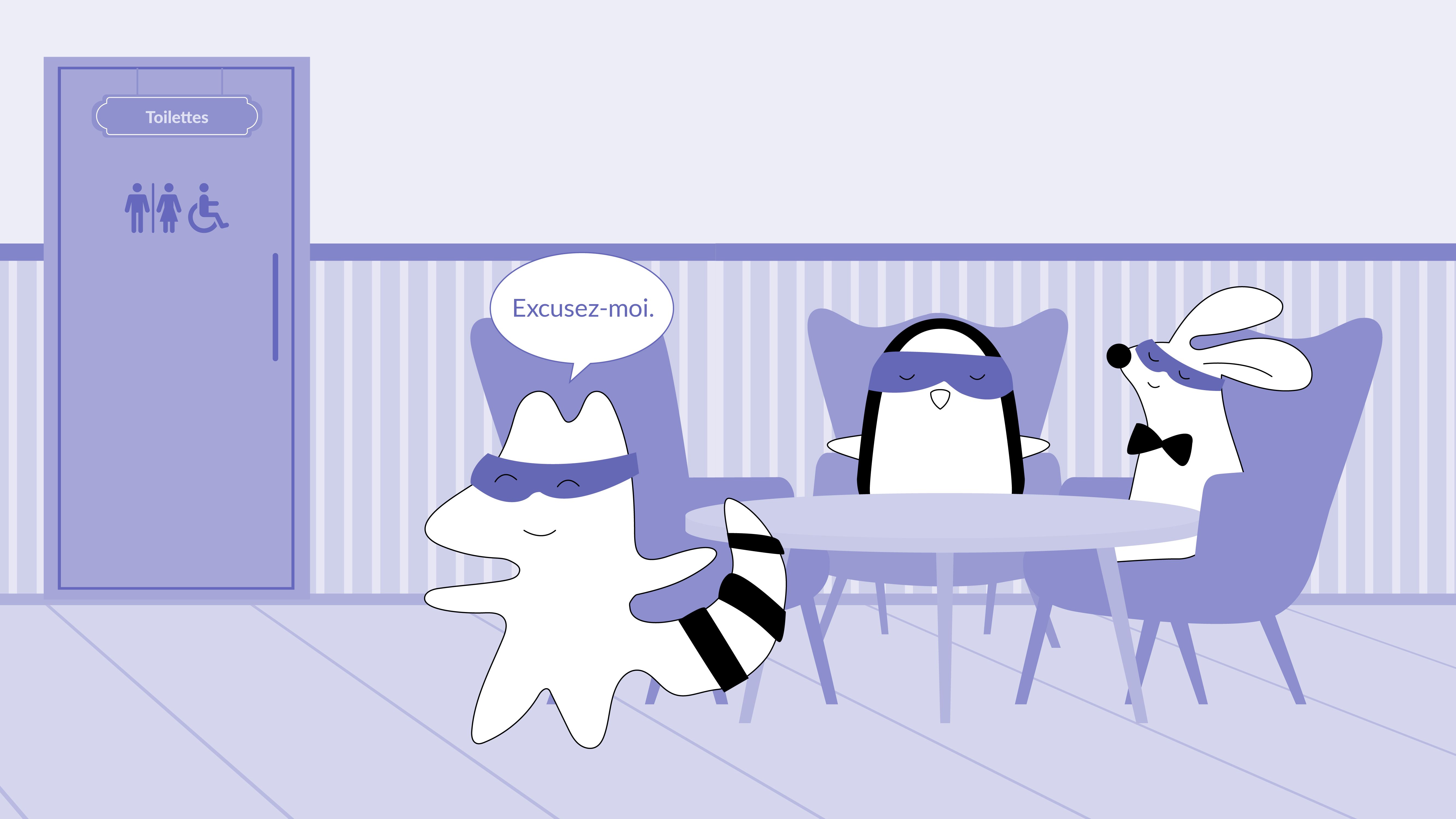
Adjusting to the subtleties of French culture includes understanding the discreet nature of restroom manners among old-school French individuals. A simple Excusez-moi often suffices when excusing oneself to visit the toilet—a practice embodying the French penchant for privacy and politeness.
Additionally, it is considered more polite to time restroom visits either before a meal begins or after it concludes rather than interrupting the flow of a communal dining experience.
In public restrooms, especially those in cafes or restaurants, it is customary to make a purchase or ask permission before using the facilities. Observing these customs demonstrates respect for the establishment and its staff. Also, Merci liberally — after being directed to the restroom, for instance. It's just polite.
Remember, French toilets aren't always like those in the US or UK. Flushing systems may vary, and often, public restrooms may not provide soap or toilet paper. The lesson? Always carry a few Euros for emergencies and essentials like a small packet of tissues or wipes and a hand sanitizer — these can be lifesavers!
Nonetheless, while these customs are part of traditional French etiquette, modern society is more forgiving. Always remember — when you've got to go, you've got to go, and that's perfectly human!
French Public Toilets
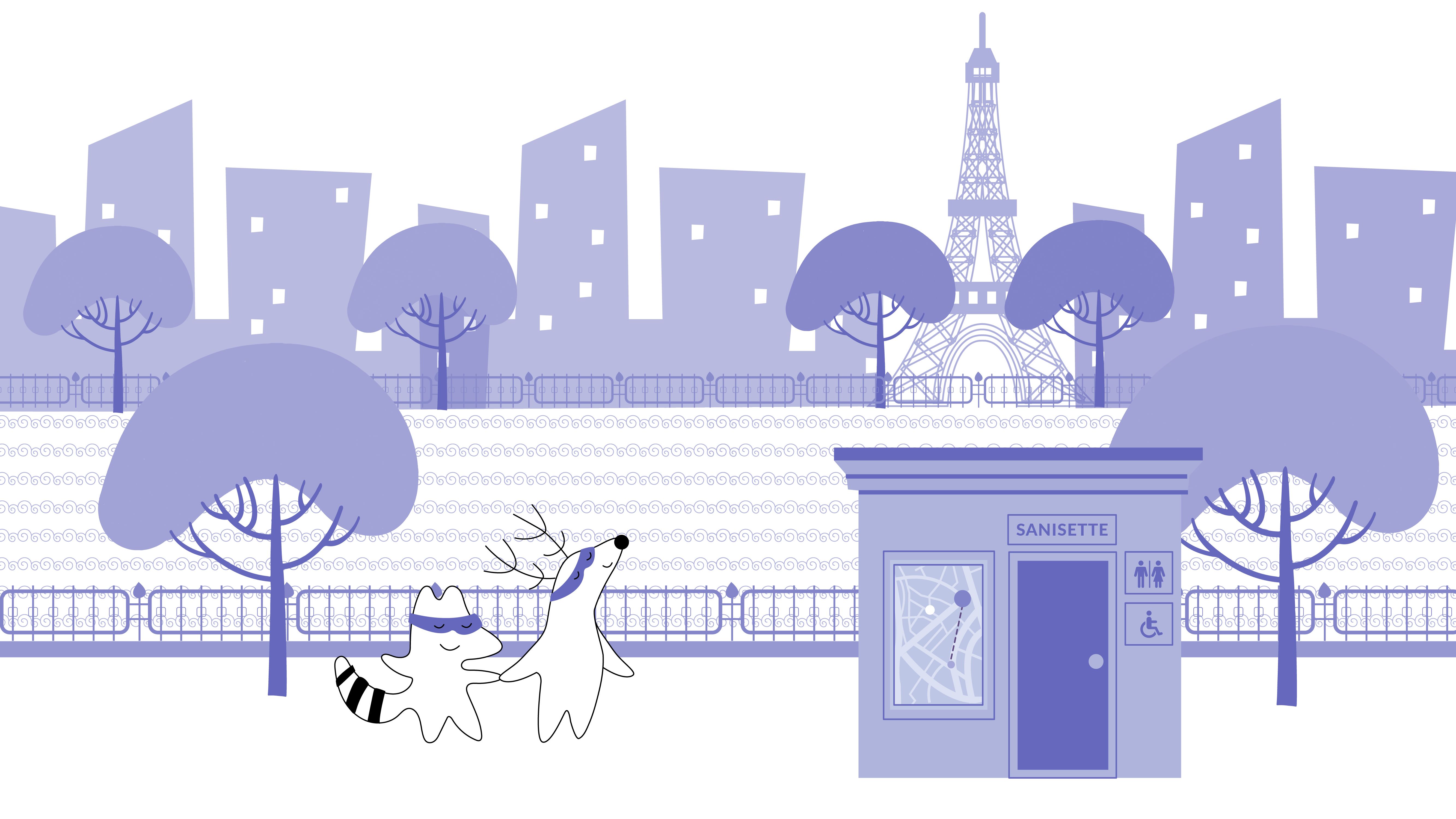
Upon exploring the urban landscape of French cities, you might encounter an innovative solution to public amenities known as a sanisette. These automated, self-contained toilets can be a godsend for those on the go.
There is typically a small fee required for access, but they are generally well-maintained and clean. The usage instructions for these units are straightforward and user-friendly. However, be mindful that sanisettes are equipped with a self-cleaning feature — the unit gets cleaned automatically after each use.
So, it’s imperative not to circumvent the payment system by attempting to sneak someone in post-use, as they could unwittingly initiate the cleaning cycle — not exactly the kind of free shower you’d like to get.
In some instances, more traditional — yet less comfortable — options may also be available. Known as toilettes à la turque, or squat toilets, these consist of a hole in the ground accompanied by places to set your feet.
Common in various locations around France, this style requires you to squat rather than sit. While they might seem daunting at first, these facilities are a practical and hygienic solution in many public places.
It's always useful to be aware of and prepared for the different types of restrooms you may encounter when traveling through France.
Une Dame Pipi
When navigating the public restrooms of France, you might come across a unique French term: dame pipi. This refers to an attendant, usually (but not necessarily) a woman, responsible for the upkeep of public toilets. The dame pipi ensures the facilities are clean, often provides essential supplies, and may collect a fee for usage of the toilet.
While not present in every public restroom, they are more common in busy or tourist-heavy areas. It's good etiquette to have some small change on hand to tip the dame pipi for their services in appreciation of the maintenance of clean and functional facilities.
Regional Variations
Just as English varies from country to country, so does French. The term you use for "bathroom" in France may not be the same one used in Quebec or the various African countries where French is spoken.
Being aware and respectful of regional differences will serve you well in your travels. For instance, one of the most amusing and vivid expressions you'll hear in Quebec is
French
English
Ça me bouillonne dans le fond de la flûte.
It's bubbling up in the bottom of my flute.
While this phrase conjures up a pretty colorful image, it's actually just an illustrative way of saying, “I need to use the restroom.” Truly, such a uniquely creative phrase should not be confined to the bounds of Quebec alone!
Tips for Remembering Vocabulary
Learning a foreign language can be daunting, but with the right approach, it can also be highly rewarding. Here are tips to help that WC vocabulary stick:
- Make it memorable. Associate the French terms with vivid pictures or memories. For example, le petit coin could conjure up an image of a cozy, small space, while les chiottes might evoke a more run-down type of facility. Visual imagery can be a powerful memory aid.
- Repeat, repeat, repeat. Repetition is key for learning vocabulary. Use flashcards or language learning apps such as Langster to drill yourself on the different terms and phrases.
- Practice in context. Language learning apps often provide lessons and practice exercises that put vocabulary into realistic scenarios. The more you practice in context, the more ingrained the vocabulary becomes.
- Immerse yourself. Listen to French music and watch French movies — or better yet, take a trip to a French-speaking country. Immersing yourself in the language and culture will accelerate your learning and add richness to your vocabulary.
Takeaway
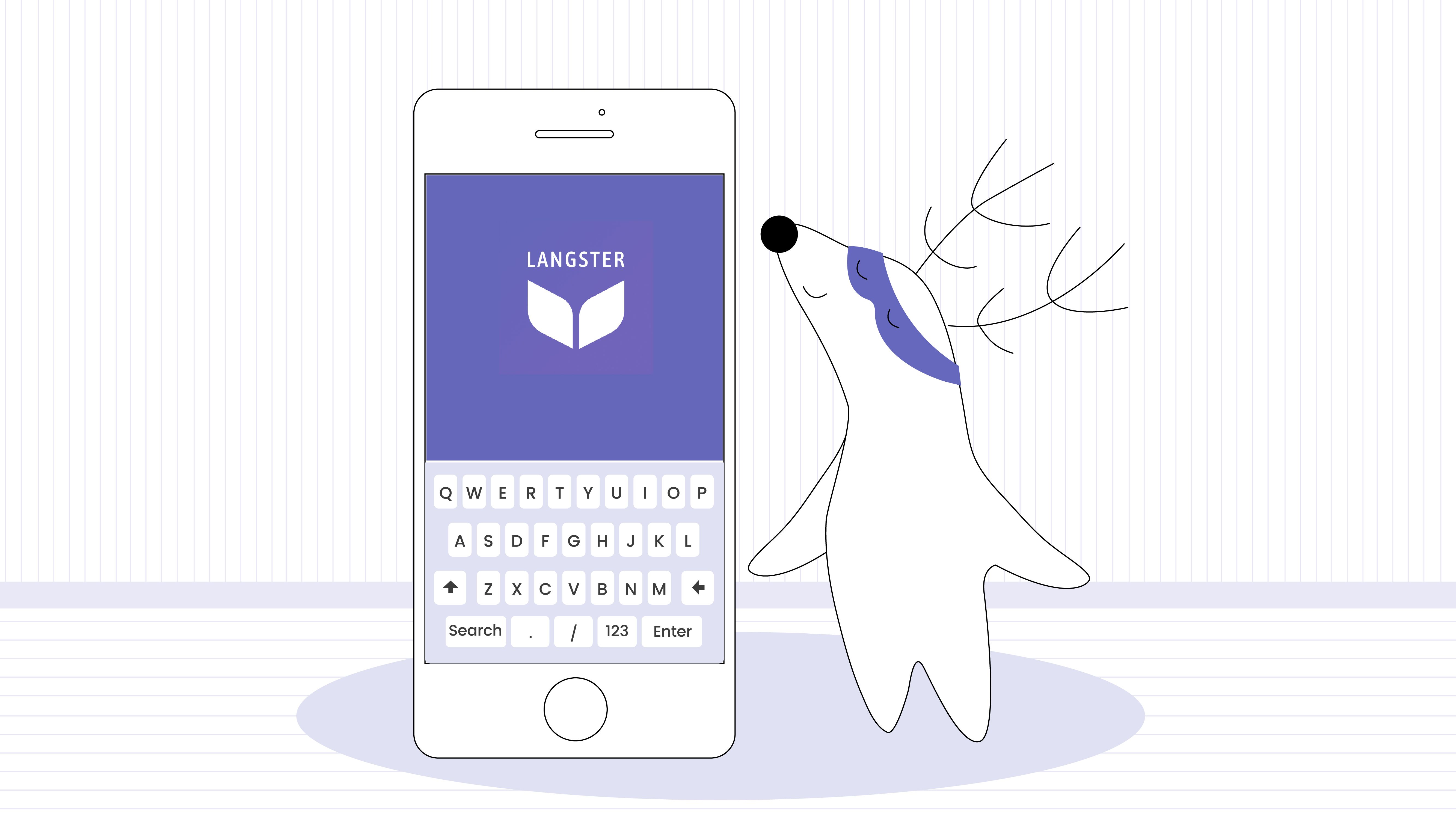
It's clear that knowing how to find the bathroom in a French-speaking country is more than just about language; it’s about cultural understanding and respect. Embracing this knowledge as you broaden your linguistic horizons will undoubtedly enhance your experience and interactions while traveling.
So, before your next voyage, be sure to master the art of finding and using les toilettes en français — after all, you don’t want to travel at the expense of your own personal hygiene. Bonne chance et bon voyage!
Learn French with Langster









